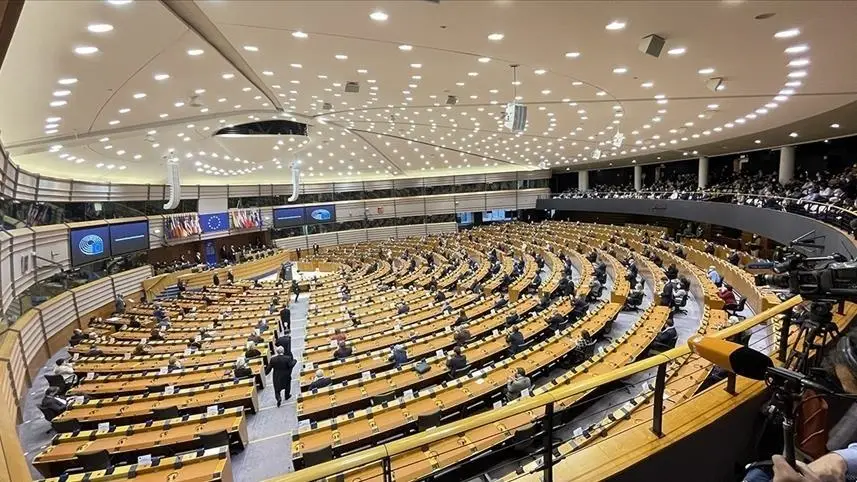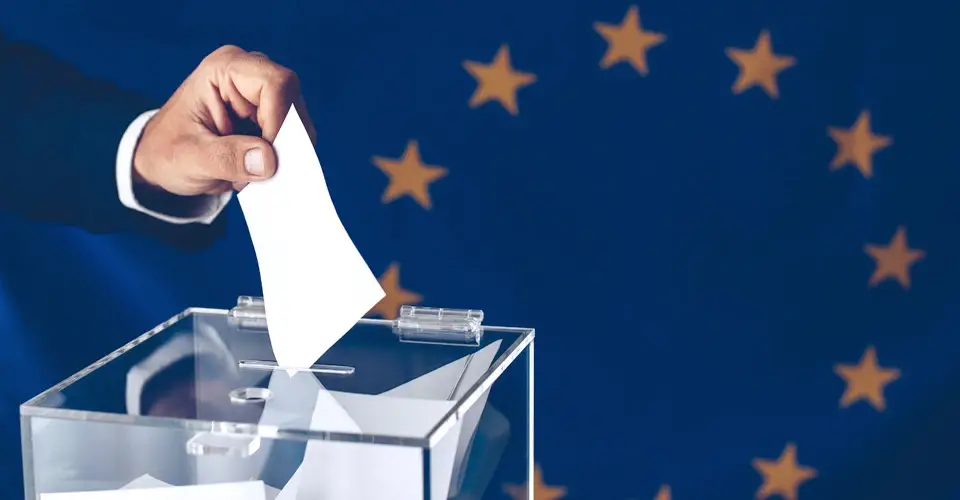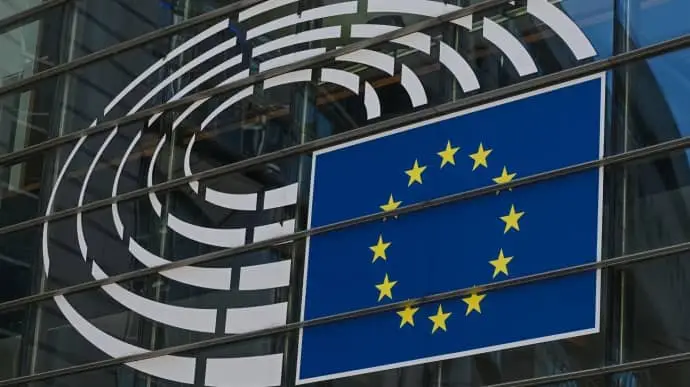Why this year's elections to the European Parliament are considered historic

Do these elections really demonstrate significant changes in the EU political landscape?
Despite the noisy headlines about the success of right-wing populists, the takeaway from the European Parliament elections is that the three main political groups remain stable.
The center-right group of the European People's Party (EPP) won the most votes (with a projected 184 MEPs), which is typical for European Parliament elections since 1999. According to the preliminary results, the Progressive Alliance of Socialists and Democrats (S&D) came in second with a projected 139 MEPs. And the Restoration party came in third with a projected 80 MEPs.
Together, these three leading parties are estimated to win 403 seats in the 705-seat European Parliament. This is a majority, although it is 14 votes less than in the previous convocation (417 seats). The EPP was the only major political group to increase its popularity, while other parties lost support compared to the 2019 elections.

Why are these elections called historic?
Year after year, European elections, such as voting for members of the European Parliament, were considered an event that usually did not attract much attention in the political world. Even though it is the election of representatives of the largest legislative body in Europe and the only EU authority directly elected by citizens. However, the influence of the European Parliament on politics is indeed limited, as politicians have fewer opportunities to influence it.
These elections have often been perceived as secondary by both voters (since 1999, only once has the turnout exceeded 50%) and politicians (because of this, the fight for seats in the EP has often not been so fierce; just think of the victory of a Danish student in 2019 or an apolitical YouTuber in Cyprus this year). This has led to an unwritten rule: the results of European elections are irrelevant to national politics, as practice has shown that the results of national elections can differ significantly.
But 2024 was a historic year.
Voter turnout reached its highest level in three decades. In France, the government succumbed after the European elections. In Germany, there are problems with the coalition. Hungary is likely to have important results as well. The list goes on and on. The main conclusion is that this time the pan-European campaign, if not in all countries, but in many, has become an event that really determines the future development.
The growing popularity of the far right has become one of the main topics of discussion. Elections to the European Parliament do not create a new system, but redistribute the emphasis in European politics. But even such a shift in emphasis in such a powerful, but fragile supranational entity as the European Union can have serious consequences.
According to Italian Prime Minister Giorgio Meloni, this year's European Parliament elections are "a referendum to choose between two Europes" that will eventually have to find a compromise. However, Ukraine's future may depend on whether the glass is "half empty or half full".
Kyiv is certainly watching the situation closely and responding to the adjustments in the European political landscape. russia's war against Ukraine is the main issue of election rhetoric in most EU member states — from Ukraine's sympathizers to critics. The issue of security and defense of the European Union is viewed through the prism of Ukraine and is the main topic for the election campaign in nine out of twenty-seven EU member states, according to the Eurobarometer.

Why the topic of the "right" has become so popular in the media and what to expect from them
Ahead of the European Parliament elections, talk of the rise in popularity of far-right forces became a major topic. And this was quite reasonable: indeed, in many countries, the ratings of right-wing and far-right forces are currently on the rise.
The marked development of the ratings of Marine Le Pen's National Rally, Alternative for Germany (AfD) and the Austrian Freedom Party has led to discussions on this issue. Even polls, including exit polls, confirmed this trend. And although it was clear before the vote that anti-Ukrainian forces would not get a majority in the parliament (as EuroPravda reported in detail), the growth of their influence caused outrage.
So, it is worth considering what happened to the European right-wing and how it affects us.
After all, right-wing groups are different, and not all of them pose a threat to Ukraine.
True, there are those among the extreme right-wing parties who openly or covertly support russia. These are not only the aforementioned parties from France, Germany, and Austria, but also other parties from Poland to Italy that often support the kremlin's interests and narratives. These parties are usually represented in the ID (Identity and Democracy) group in the European Parliament. Some of them, such as the Greek neo-fascist Golden Dawn, are so toxic that even other far-right parties do not want to deal with them. For example, recently, Alternative for Germany was expelled from the ID group because of its statements that were perceived as support for Nazism.
But there are also right-wing forces without the prefix "ultra".
For example, the European Conservatives and Reformists (ECR) is basically an association of traditional right-wing parties that, while Eurosceptic, support an economically strong European Union and seek greater oversight of national authorities. Another common feature of most conservatives is their anti-russian stance, which manifests itself in their support for Ukraine in the war against russia. Examples include Poland's Law and Justice (PiS) or the Brothers of Italy.
A final political force is the European People's Party (EPP), the largest supranational group in the EU. They are center-right, but have recently begun to support more right-wing views. EPP members form the basis of the "support group for Ukraine". It is worth noting that Ursula von der Leyen is also a member of the EPP. Comparing them to the ID may seem strange, but both are right-wing politicians.
Let's get back to the results of the European elections.
All right-wing groups will gain significant influence in the new convocation of the European Parliament.
According to the initial distribution of seats, the European People's Party (EPP) will lead with 184 seats — eight more than it currently has; the Conservatives will get 73 seats (+4), and the far right — 58 (+9). No other existing group in the European Parliament will increase the number of seats. But this is not the whole number — several new parties that have not previously been represented in the EP intend to join one of the right-wing forces. Also, Hungarian Prime Minister Viktor Orban's Fidesz party plans to join the Conservatives.
If all right-wing parties are counted, they will win more than 350 seats (the exact number will be known later). They need 361 votes to gain a majority. Although it is unclear whether all right-wing parties will reach this mark (probably not), this result is surprising.
"The shift to the right in the European Parliament is the key conclusion of the elections. There is even a possibility that for the first time in the history of the European Parliament, right-wing parties will win a joint majority", agrees Pawel Zerka, Senior Analyst at the European Council on Foreign Relations.

What conclusions can be drawn from these elections?
But even in the context of influencing European politics, the consequences of the European Parliament elections are relatively small compared to what happens in individual countries.
While at the European level we can talk about a moderate and not catastrophic result for the far right, the situation in the countries themselves is much more complicated and needs to be carefully studied.
For example, in Poland, the anti-Ukrainian (and, in the opinion of many, covertly pro-russian) Confederation party came in third place and received 12% of support. Alternative for Germany came in second with almost 16%. In Austria, the far-right Austrian Freedom Party came in first, as did the National Rally in France.
It is particularly striking that in the capitals of these countries, the election results have had serious consequences, sometimes leading to change. For example, two prime ministers — in Belgium and France — lost their positions due to the defeat of their parties.
The French situation is particularly significant, not only because of the weight of this country.
It should be noted that Macron already faced a similar experience in 2019, when his party also lost the election and the far right won. However, unlike in the past, this time he decided to accept defeat and call early elections to the French parliament, although he was not obliged to do so.
In general, the EU has noted a sharp increase in the importance of European election results for national politics.
"The main conclusion of this election night is that now the European Parliament elections can have serious consequences for politics in EU member states. This is the announcement of early elections in France; this is the resignation of the Belgian Prime Minister; this is the loss of all three coalition parties in Germany, which was the result of the success of the far-right Alternative for Germany, which will affect their position before the federal elections next year", said Pawel Zerka, an analyst at the European Council on Foreign Relations.
The expert also noted the impressive results in Hungary, where the situation is even more complicated.
For example, although Viktor Orban's Fidesz party received 44% of the vote and won a single majority in the Hungarian delegation to the European Parliament (11 seats out of 21), this is considered a very low result for it. His supporters are used to much higher results, and in previous European Parliament elections, they never had any competitors at all.
Additionally, these EP elections opened the way for a politician who is considered a real competitor to Orban in the upcoming parliamentary elections. This is the case of Péter Magyar, who received significantly more votes than expected and almost reached the 30% mark.
In addition, the importance of the European Parliament elections was manifested in the fact that they determined the emergence of a politician who is considered a potential competitor to Orban in the upcoming parliamentary elections. We are talking about Péter Magyar, who surpassed all forecasts by gaining almost 30% of the vote. More information about him can be found in the article "An Alternative for Hungary".
Of course, the European Parliament elections did not remove all the shortcomings overnight.
In some countries, they remain a subordinate event. Some vote as a "joke", as in Cyprus, where voters supported a 24-year-old YouTuber who "knows nothing about politics" (however, such situations are not unusual even in national elections in EU countries). However, the rise in turnout, which could exceed 50% this year (which would be the highest for a European election since 1994), shows that EU citizens are mostly interested in how policy is shaped at the European level.









